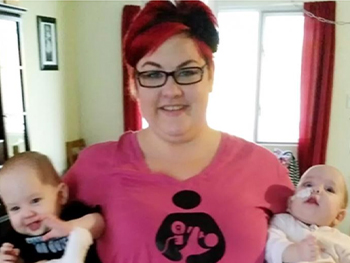 For some babies, feeding doesn’t always happen directly at the breast. There may be a number of reasons why this is so. Other feeding methods can help families meet their infant feeding goals, including using:
For some babies, feeding doesn’t always happen directly at the breast. There may be a number of reasons why this is so. Other feeding methods can help families meet their infant feeding goals, including using:
- Freshly expressed breast milk from baby’s own parent
- Frozen expressed breast milk from baby’s own parent
- Pasteurized donor human milk
- Store-bought infant formula (human milk substitutes)
No matter the method of feeding, it’s important that families know about the importance of skin-to-skin contact, how to respond to their baby’s hunger and fullness cues, and how to access professional and peer support. We want all families to feel safe and confident feeding their babies. If you need additional help with breastfeeding, professional and community-based supports are available.
Featured resources
- Alternative feeding methods for newborns (video) – HealthLink BC
- Life as an exclusive expresser - La Leche League International
- For families feeding with infant formula, please see nutrition in the first year for more information
Featured NH stories
- Breastfeeding: It can look different!
- Pumping breast milk: Northern mom Dr. Jessie King shares her story
For more information
- Email us at Breastfeeding@northernhealth.ca
- Reach out to Northern Health for help with breastfeeding if you have any questions or concerns
- Contact the First Nations Health Authority (FNHA) Maternal and Child Health Program for breastfeeding supports in local First Nations communities
- Call HealthLink BC at 8-1-1 (or 1-604-215-8110) to reach a nurse, dietitian, pharmacist, or exercise professional
- Connect with a La Leche League leader for mother-to-mother/parent-to-parent peer support
